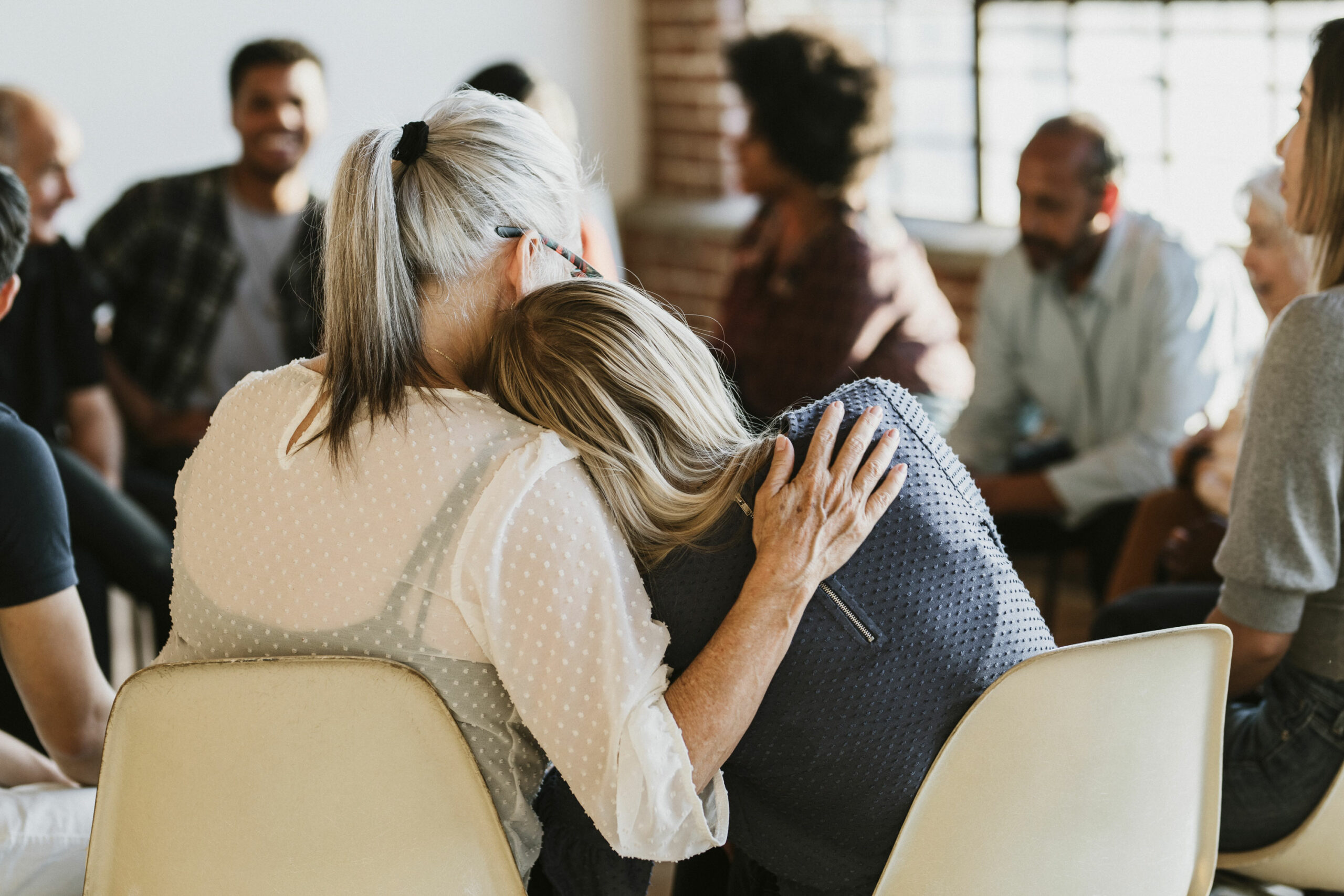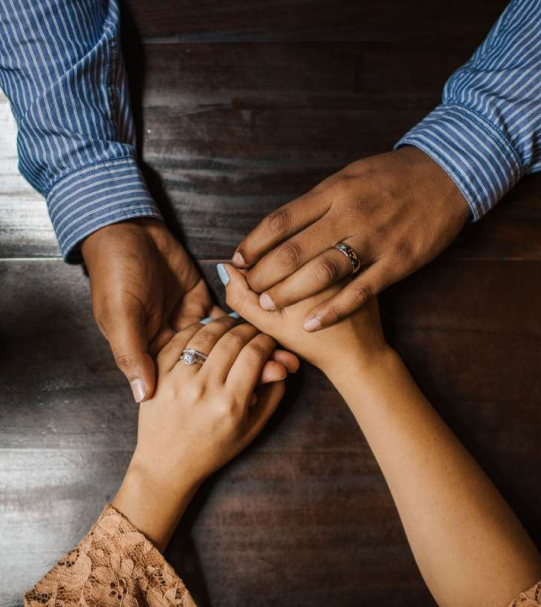

Unique Recovery Programs For Health and Healing
Embarking on the path to recovery is a courageous and transformative journey. At Wellbridge, we recognize the importance of finding the right support system to guide you through this process. Our diverse range of recovery programs is tailored to meet your individual needs, offering a supportive environment where you can explore various approaches to sobriety.
In our recovery programs, you’ll find more than just a set of guidelines or meetings—you’ll discover a community of people who understand the challenges you face and are dedicated to helping you overcome them. Whether you’re seeking fellowship or prefer a more cognitive approach, our experienced facilitators and supportive peers are here to walk alongside you every step of the way.
At Wellbridge, we believe that recovery is not just about abstaining from substance use; it’s about reclaiming your life and embracing a future filled with hope, resilience, and purpose.
What Are Recovery Programs?
Recovery programs encompass a variety of structured initiatives and supportive environments designed to assist you in overcoming addiction and substance abuse disorders.[1] These programs typically offer a combination of education, counseling, peer support, and practical strategies to help you navigate the challenges of addiction recovery.[2] The overarching goal of recovery programs is to empower people to address the physical, psychological, and social aspects of addiction while developing the skills and resilience needed to maintain long-term sobriety.
Several types of recovery programs are available, each with its own unique approach and focus. Traditional 12-step programs, such as Alcoholics Anonymous (AA) and Narcotics Anonymous (NA), emphasize principles of personal accountability, spiritual growth, and peer support.[3] These programs typically involve regular meetings where individuals share their experiences, discuss recovery-related topics, and work through the 12 steps of recovery with the guidance of a sponsor.
In addition to 12-step programs, there are alternative approaches to recovery, such as SMART Recovery, which emphasizes self-empowerment, cognitive-behavioral techniques, and evidence-based strategies for managing addictive behaviors.[4] SMART Recovery meetings typically focus on goal-setting, problem-solving, and developing coping skills to address triggers and cravings.
Other recovery programs may incorporate elements of therapy, counseling, medication-assisted treatment, holistic approaches, and peer support networks to provide comprehensive support tailored to individual needs.
Ultimately, recovery programs offer a structured framework and a supportive community for individuals seeking to overcome addiction and rebuild their lives free from substance abuse.
Learn More About Our Programs Would a Recovery Program be beneficial for you or a loved one? Reach out now.What Are Some Examples of Recovery Programs?
There are many examples of recovery programs tailored to address various aspects of addiction and support you in the journey toward sobriety:[5]
- Alcoholics Anonymous (AA): One of the oldest and most well-known recovery programs, AA follows a 12-step model focusing on personal accountability, spiritual growth, and fellowship. AA meetings provide a supportive environment for individuals struggling with alcohol addiction to share their experiences and work through the 12 steps with the guidance of a sponsor.
- Narcotics Anonymous (NA): Similar to AA, NA follows the same 12-step model but is tailored specifically for individuals recovering from drug addiction. NA meetings offer a supportive community where members can share their struggles and successes and support one another in their recovery journey.
- SMART Recovery: SMART (Self-Management and Recovery Training) Recovery is a science-based program that emphasizes self-empowerment, cognitive-behavioral techniques, and practical strategies for managing addictive behaviors. SMART Recovery meetings focus on developing skills such as goal-setting, problem-solving, and coping with cravings.
- Dual Diagnosis Anonymous (DDA): DDA is a recovery program specifically designed for individuals dealing with co-occurring mental health disorders and substance abuse issues.[6] Meetings focus on addressing both the addiction and underlying mental health issues through peer support and education.
- Refuge Recovery: Refuge Recovery is a Buddhist-inspired recovery program that incorporates mindfulness, meditation, and the Four Noble Truths and Eightfold Path to help individuals overcome addiction and find lasting freedom from suffering.[7]
How Do Recovery Programs Help Me to Heal From Addiction?
Recovery programs play a crucial role in facilitating healing and promoting holistic wellness for those struggling with addiction:[8]
- Supportive community: Recovery programs provide a supportive environment where you can connect with others who understand your struggles and challenges. Being part of a community of individuals on similar journeys can reduce feelings of isolation and shame, fostering a sense of belonging and understanding.
- Peer support: One key element of recovery programs is peer support. Sharing experiences, listening to others’ stories, and offering encouragement and empathy can provide valuable emotional support and motivation to stay committed to recovery goals.
- Structured framework: Recovery programs offer a structured framework for addressing addiction and its underlying causes. Whether following a 12-step model, a cognitive-behavioral approach, or another methodology, these programs provide a roadmap for personal growth, self-reflection, and positive change.
- Education and awareness: Recovery programs often include educational components aimed at increasing awareness and understanding of addiction, recovery principles, coping strategies, and relapse prevention techniques. Equipping yourself with knowledge about addiction and recovery can empower you to make informed decisions and develop healthier behaviors.
- Accountability: Many recovery programs incorporate accountability elements, such as AA sponsorship or setting goals in SMART Recovery. Being accountable to yourself and others helps reinforce your commitment to sobriety and encourages you to take responsibility for your actions and choices.
- Coping skills development: Recovery programs teach practical coping skills and strategies to manage cravings, triggers, stress, and other challenges associated with addiction. Learning how to cope with difficult emotions and situations effectively is essential for long-term recovery and maintaining sobriety.
- Personal growth: Engaging in a recovery program can be a catalyst for personal growth and self-discovery. Through self-reflection, goal-setting, and overcoming obstacles, you can develop resilience, self-esteem, and a renewed sense of purpose.
Frequently Asked Questions About Recovery Programs
How long do recovery programs typically last?
The duration of recovery programs can vary widely depending on individual needs, the severity of addiction, and the type of program. Some programs may last a few weeks, while others may extend for several months or years. It’s essential to consider factors such as the level of support required and the goals of the individual when determining the length of participation in a recovery program.
What happens during a typical recovery program session or meeting?
In a typical recovery program session or meeting, participants engage in various activities aimed at supporting their journey to sobriety. This may include group discussions, sharing personal experiences, learning coping strategies, participating in therapeutic exercises, and receiving support from peers and facilitators. The content and format of sessions can vary depending on the specific program and its approach to recovery.
Are recovery programs confidential?
Yes, confidentiality is a fundamental aspect of most recovery programs. Participants are typically encouraged to share openly and honestly in a safe and supportive environment without fear of judgment or disclosure of personal information outside of the group. However, it’s essential to review the confidentiality policy of the specific program to understand the extent of confidentiality and any exceptions that may apply.
Do recovery programs offer support for family members of individuals struggling with addiction?
Many recovery programs recognize the importance of involving family members in the recovery process and offer support services specifically tailored for them. These may include family therapy sessions, educational workshops, support groups for family members, and resources for improving communication and relationships. Involving family members in the recovery journey can enhance understanding, foster healing, and strengthen the overall support system for the individual in recovery.
How do recovery programs address co-occurring mental health disorders?
Recovery programs often incorporate integrated treatment approaches that address both addiction and co-occurring mental health disorders. This may involve comprehensive assessments to identify underlying mental health issues, individualized treatment plans that target both conditions simultaneously, and access to mental health professionals such as therapists or psychiatrists. By addressing co-occurring disorders concurrently, recovery programs aim to improve overall outcomes and reduce the risk of relapse.
Are there recovery programs specifically tailored for certain demographics, such as LGBTQ+ individuals or veterans?
Yes, there are recovery programs specifically designed to meet the unique needs of various demographics, including LGBTQ+ individuals, veterans, seniors, adolescents, and more. These programs may offer specialized services, culturally competent care, and support groups tailored to these populations’ specific challenges and experiences. Accessing a recovery program that aligns with one’s demographic identity and needs can enhance engagement and improve outcomes in the recovery journey.
Sources
[1] SAMHSA. (2019, January 14). Recovery and recovery support. Samhsa.gov. https://www.samhsa.gov/find-help/recovery on May 8, 2024
[2] Kelly, J. F., & Yeterian, J. D. (2011). The Role of Mutual-Help Groups in Extending the Framework of Treatment. Alcohol Research & Health, 33(4), 350–355. https://www.ncbi.nlm.nih.gov/pmc/articles/PMC3860535/ on May 8, 2024
[3] Donovan, D. M., Ingalsbe, M. H., Benbow, J., & Daley, D. C. (2013). 12-Step Interventions and mutual support programs for substance use disorders: an overview. Social Work in Public Health, 28(3-4), 313–332. https://doi.org/10.1080/19371918.2013.774663 on May 8, 2024
[4] Kelly, J. F., Levy, S. A., & Hoeppner, B. B. (2023). An investigation of SMART Recovery: protocol for a longitudinal cohort study of individuals making a new recovery attempt from alcohol use disorder. BMJ Open, 13(2), e066898. https://doi.org/10.1136/bmjopen-2022-066898 on May 8, 2024
[5] Recovery-Oriented Mutual Self-help Groups – Whole Health Library. (n.d.). Www.va.gov. https://www.va.gov/WHOLEHEALTHLIBRARY/tools/recovery-based-mutual-self-help-groups.asp on May 8, 2024
[6] About Dual Diagnosis Anonymous Dual Diagnosis Anonymous. (2018, December 29). https://ddainc.org/about/ on May 8, 2024
[7] About. (n.d.). Refuge Recovery World Services. https://www.refugerecovery.org/about on May 8, 2024
[8] Fiorentine, R., Gossop, M., Kaskutas, L. A., Kelly, J. F., White, W. L., Babor, T., Best, D., Comiskey, C. C., Day, E., Leon, G. D., & Horvath, A. T. (2019, December 9). Does the effectiveness of mutual aid depend on compatibility with treatment philosophies offered at Residential Rehabilitation Services?. Addictive Behaviors. https://www.sciencedirect.com/science/article/abs/pii/S0306460319303806 on May 8, 2024
Get the Support You Need to Overcome Addiction
Start your journey to healing and transformation with Wellbridge and discover the supportive community, structured framework, and personalized approach to recovery that can empower you on your path to sobriety and wellness.
Contact us today to learn more about our comprehensive recovery programs.